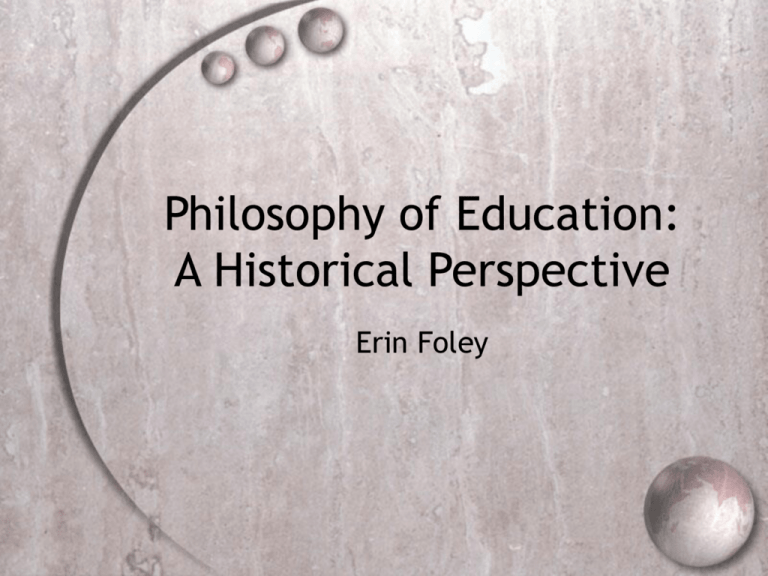Historical Context of Educational Philosophies and Theories
A Historical Context of Educational Philosophies and Theories

Source: pinimg.com
Historical context of educational philosophies and theories – Understanding the historical evolution of educational thought is key to appreciating how different approaches to learning outside of traditional schooling, like those explored in different approaches to lifelong learning programs outside formal schooling and their effectiveness , have emerged. Looking back at past educational philosophies helps us analyze the effectiveness of modern learning methods and identify potential gaps or areas for improvement.
This ultimately shapes our understanding of the ongoing historical development of educational theories.
Educational philosophies and theories have evolved significantly throughout history, reflecting societal shifts, cultural values, and technological advancements. This exploration examines key periods, from ancient civilizations to contemporary times, highlighting the interplay between educational practices and broader social contexts.
Understanding the historical context of educational philosophies and theories is key to appreciating how our modern education systems developed. For example, examining the evolution of thought, like in historical context of educational philosophies and their evolution in shaping modern education , reveals how past ideas have shaped current practices. Ultimately, a solid grasp of historical context is essential to analyzing educational philosophies and theories.
Ancient Philosophies and Education, Historical context of educational philosophies and theories
Source: blogspot.com
Ancient civilizations, including Greece, Rome, and others, developed distinct educational systems shaped by their unique societal structures. These systems varied in their approaches to teaching and learning, often reflecting the social hierarchy and prevailing values of the time.
- Ancient Greece emphasized intellectual pursuits, with prominent figures like Socrates, Plato, and Aristotle advocating for dialectic methods and the pursuit of knowledge. Education was often associated with the development of well-rounded citizens.
- Ancient Rome focused on practical skills and civic duty, with education serving to prepare individuals for roles within the Roman state. Emphasis was placed on rhetoric, law, and administration.
- Other Civilizations included various approaches to education. For example, in ancient China, education often emphasized Confucian principles and the importance of ethical conduct and social harmony. Different civilizations emphasized different aspects of knowledge, with some prioritizing artistic expression, while others focused on religious teachings.
The relationship between societal structures and educational practices in these eras was inextricably linked. Education was designed to maintain and reinforce the existing social order. Methods of teaching and learning varied based on the social class and the goals of the educational institution.
| Civilization | Focus | Methods | Prominent Figures |
|---|---|---|---|
| Ancient Greece | Intellectual development, citizenship | Dialectic, discussion, observation | Socrates, Plato, Aristotle |
| Ancient Rome | Practical skills, civic duty | Rhetoric, law, administration | Marcus Tullius Cicero |
| Ancient China | Confucian principles, social harmony | Memorization, ethical study | Confucius |
| Ancient Egypt | Religious study, practical skills | Hieroglyphic writing, temple learning | Priests and scribes |
Medieval and Renaissance Educational Thought

Source: studylib.net
Looking back at historical educational philosophies and theories, it’s clear that while some approaches focused on standardized learning, the modern understanding increasingly emphasizes personalized learning experiences tailored to individual needs. This shift reflects a growing recognition that students learn best when their unique needs and styles are addressed. Ultimately, these evolving ideas shape the very foundation of how we approach education today.
The medieval period saw a strong influence from religious institutions on educational development, particularly within monasteries. The Renaissance marked a resurgence of classical learning and the emergence of humanist philosophies, which emphasized the importance of human potential and individual achievement.
- Medieval Period: Monasteries and cathedral schools served as important centers of learning, preserving and transmitting classical knowledge while also incorporating religious doctrines into their curricula. Teaching methods often involved rote memorization and religious instruction.
- Renaissance: A renewed interest in classical texts and a focus on human potential led to the development of humanist educational approaches. Humanist educators emphasized the importance of critical thinking, rhetoric, and the study of the humanities.
| Period | Curriculum | Teaching Methods | Key Figures |
|---|---|---|---|
| Medieval Monastery School | Religious texts, Latin grammar, logic | Rote memorization, copying texts, oral instruction | Monks, scholars |
| Renaissance | Classical literature, history, philosophy | Discussion, debate, rhetoric | Erasmus, Leonardo Bruni |
General Inquiries
What is the role of technology in modern education?
Technology has become increasingly integrated into learning, offering new tools and approaches. This has led to discussions about how technology can enhance or potentially disrupt traditional pedagogical practices.
How have political and economic factors influenced educational development?
Political and economic systems often shape educational policies and priorities. For instance, resource allocation and societal values can influence the curriculum and educational approaches adopted in a particular time and place.
How do cross-cultural perspectives inform our understanding of education?
Studying educational practices across cultures provides a broader perspective, highlighting diverse approaches to learning and teaching. This includes considering indigenous knowledge systems and how they can contribute to modern educational thought.